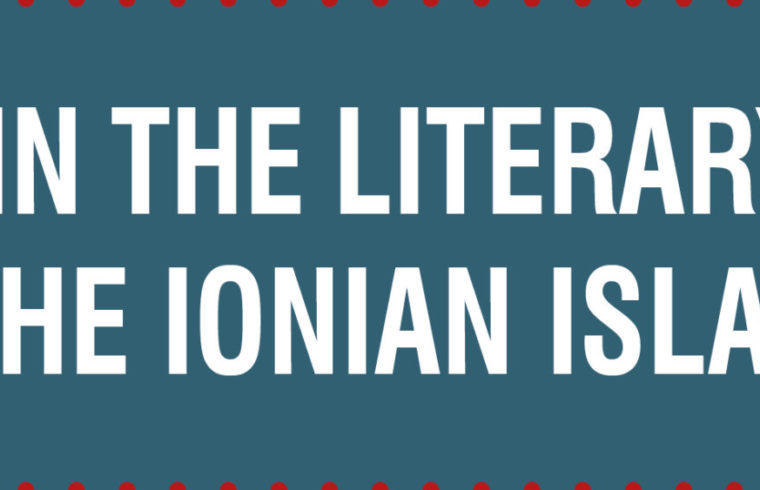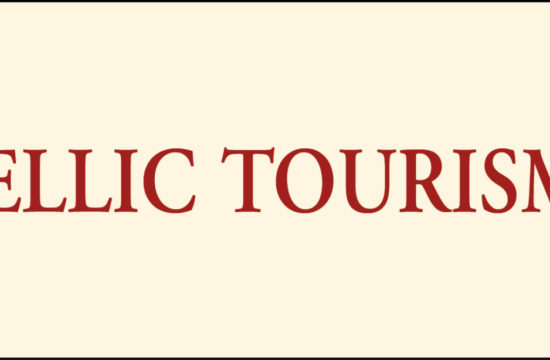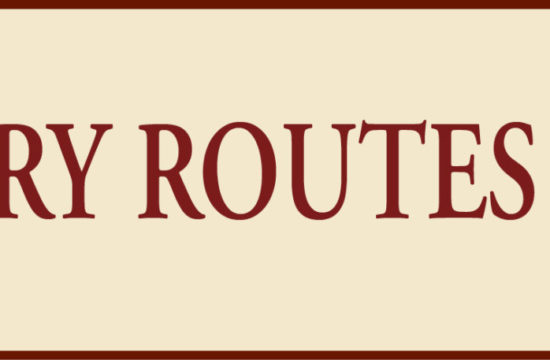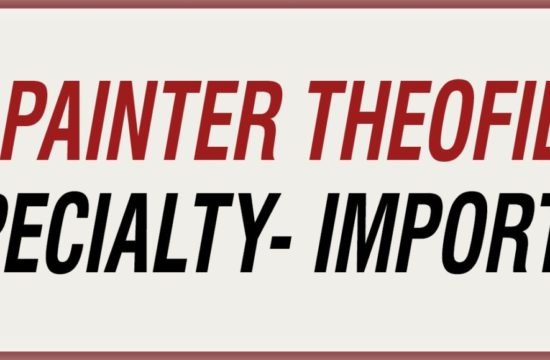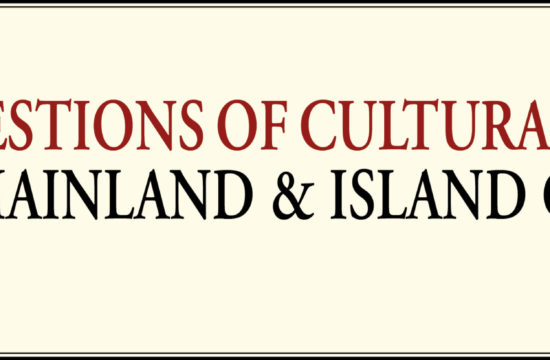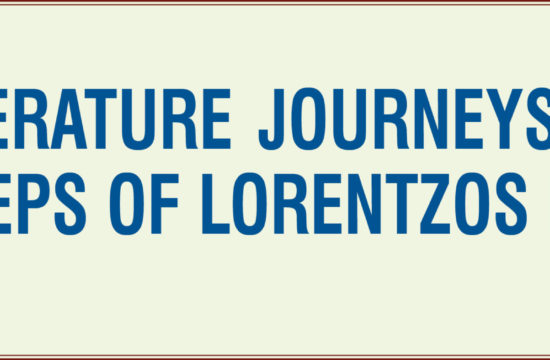Trikalitis Costas (kwstas_trikalitis@hotmail.com) PhD candidate of Tourism Management, University of West Attica (UNIWA)
Ntella Chrysoula (tour967@uniwa.gr) Student of Tourism Management, University of West Attica (UNIWA)
ABSTRACT:Travellers who choose literary tourism in Greece apart from their love of books, also love adventure,nature and desire to find out more information about their favourite book or its author. Ionian Islands contain a rich culture able to impress, without difficulty, anyone who desires to find out about them. Writers and poets such as Valaoritis, Solomos, Kalvos and others intend to carry and fascinate the readers with their poems and make them get to know that certain era.
Key words: Literary tourism, Ionian Islands, tourist, Ionian School of Literature, Rontogiannis, Solomos, Valaoritis, Kalvos
According to Manola (2019:11) «Literary tourism is a idiosyncratic type of cultural tourism that is becoming more and more widespread over time and refers to journeys made by readers in their quest to feel protagonists of their favourite books themselves». England, in the early 19th century, was the first country to start accepting travellers, whose main goal was literary tourism. Greece, has begun to make progress from the middle of the 20th century, with the literature festival, which brings together famous international writers from all over the world.(Manola, 2020b)
The Ionian school began to evolve during the 19th century, at the Ionian Islands. It mostly dealt with poetic works, lyrical,epicolyrical,and satirical. The key points of the Ionian School was that it focused on the composition of romantic and classical elements. Some examples, were the use of the vernacular language, the strong influence of European literature, especially Italian literature, the idealization of the female sex and finally the love of nature, man, religion and homeland. (Manola 2020a:10-14)
The Ionian Islands, in the 18th century, were occupied by the Venetian, French, Russians, and English but the counrty with the greatest influence was Italy. Even today, the local dialect, as well as, the architecture of the buildings are also influenced . The main literature genre was poetry leaded by Solomos and Kalvos. The writers were divided into: before Solomo’s poetry, during Solomo’s poetry and after Solomo’s poetry.One can understand that the poets of the first period existed before the appearance of Solomos, the ones of the second period lived at the same time with him and lastly the poets of the third period lived long after his death in 1857. We also have to mention Arcadian Poetry which was adopted by most of the above poets and is characterized by simplicity in style. Last but not least, let us not forget that there were the anti Solomos poets who followed different literary path from his.
As Manola wrote(2020a), literature is the art of speech and contains folk songs, stories, memories and folk poets. Due to the Venetian presence in the Ionian Island for many centuries, the Italian language always prevailed in the relations and the transactions of their political, social and economic life. According to Sklavenitis (2018), in Lefkada, in the 19th century, where Italian, French and English were taught in schools and many students, especially boys, were taught from home, two important writers appear: Zambelios who used the purist greek language in contrast to Valaoritis who used the vernacular language.
Valaoritis and Zambelios hold a special place in Ionian literature because in their work they concatenated elements of genuine patriotism and Greek linguistic purity. Their work functioned as a resistance to Western domination. ( Sklavenitis 2018)
Valaoritis for the last 10 years of his life retired to Madouri, which is a small island near Lefkada and Scorpios Island. « His house, until today,is inhabited by his relatives and descendants.» (Manola 2020a:27)
The scolar Panos G. Rontogiannis (1911- 1996) is in one of the most important writers of Lefkadian literature. In his work, he provides us with information about the mentality and behaviour of the island’s society.
Corfu is an important UNESCO monument, its history and culture are evident from the first visit due to the monuments and «the architecture, since for more than 2.500 years the style of construction of buildings often changed due to the numerous civilizations that passed through it». Fortresses, palaces, temples and museums are scattered and reflect the periods of its history.
( G. Tsoumanis et alias :2014)
Corfu is characterized by a multitude of important people who grew up and lived there. With their poems and litarary creations they transmitted knowledge to modern society. To this category belongs Dionysios Solomos, the national poet, who created poetry from the language of the people and surprisingly combined language and freedom in their works, so that the reader can easily read his memoir. (Chatzigiannidi :2006)
According to Manola’s (2020a) book[1] our national poet lived between two houses, one in Zakynthos and the other in Corfu. The house in Mouragia built in the old town of Corfu , today functions as a museum and Solomos‘ Study Center. He lived there, most of his life ( 1798- 1857) and the museum is dedicated to his life and work. Photografic material is exhibited, referring to the people and events related to his life, work and time of Solomos. The museum of Solomos and Prominent Zakynthian People, was built after the earthquakes in 1953 in Zakynthos, contains heirlooms from donations from individuals and pertinent organizations and is available to the public from 24 August in 1966. (Manola, 2020a)
Staying in beautiful Zakynthos, we will refer to Andreas Kalvos[2] and his poetic work. The poetry of Odes, did not contain, according to Georganta (2017), dictionary poverty and conventional vocabulary because at that time the linguistic revolution of Romanticism was predominant. Kalvos, was characterized by romanticism in language, while the verbal matter in his poetry testifies how great he knows the greek language, in fact he emphasizes that «he wanted to create a literary dialect that would unite the past and the present of language.»
His history and heritage are presented at the Benaki Museum, where he exhibits many of his works. (Manola,2020a)
Synopsis
To sum up, the tourist who is interested in discovering literary tourism in the Ionian Islands has a lot to see and more to learn. The poems of the scholars that are still preserved until today carry the air of that time. In addition, one can browse the museums dedicated to these great poets and gain as much knowledge as possible. Especially tourists, who visit a place because they have read a book that has taken place there or a poem or even have roots from this place, are more likely to see beyond what the average visitor sees and the experience is unforgettable and unique.
References
- Chatzigiannidi A. (2006), For the language of Dionysios Solomos, Scripta Neophilologiaca Posnaniensia pp. 257 – 263. Available at:https://pressto.amu.edu.pl/index.php/snp/article/download/13889/13555 Recovered : 30/11/2020
- Tsoumanis, G. Kavvadia, E. Oikonomou, K. (2014) Changing the look of a city: The v- Corfu case (online), IEEE Explore. Available at: https://ieeexplore.ieee.org/abstract/document/6878800/authors#authors Access in :23/11/2020,Recovered : 25/11/2020
- Georganta, A. (2017) The poetic language of Kalvos, the novelties of the romantics and an unknown comment in the newspaper Le Globe. Sigrisi, 18 Available at: https://ejournals.epublishing.ekt.gr/index.php/sygkrisi/article/download/10287/10399 Recovered : 7/12/2020
- Manola, M (2019), Literature, Tourism, Culture. Tsotras, Athens
- Manola, M (2020a). Experiental journey in the literatures of the Ionian school. Tsotras, Athens
- Manola, M (2020b), Literature tourism as a phenomenon – Examples in Greece & Italy. [Web Site ] Available at: Web seminar. 27/11. INTEREEG GREECE ITALY. POLYSEMI https://bit.ly/3746TZT,[Access: 27 November 2020].
- Sklavenitis T. (2018). Literature and writers of Lefkada (19th – 20th century ) : General Sketch. Available at: http://helios-eie.ekt.gr/EIE/bitstream/10442/15800/3/99.pdf,Access in: 9/11/2020 Recovered :17/11/2020
[1]At the beginning of the text, there is an introduction that explains literary tourism and when it may occur. In addition, it deals with the writers of the Ionian Islands and with their poetic- literary work. Futhermore, it deals with each island where they either lived or stayed seperately. Ionian Literature focuses, on poet’s houses- museums that have been preserved to this day. Tourists can visite them since they are open to visitations.
[2]He was a Greek poet of the Odes and had a rare linguistic intelligence.

